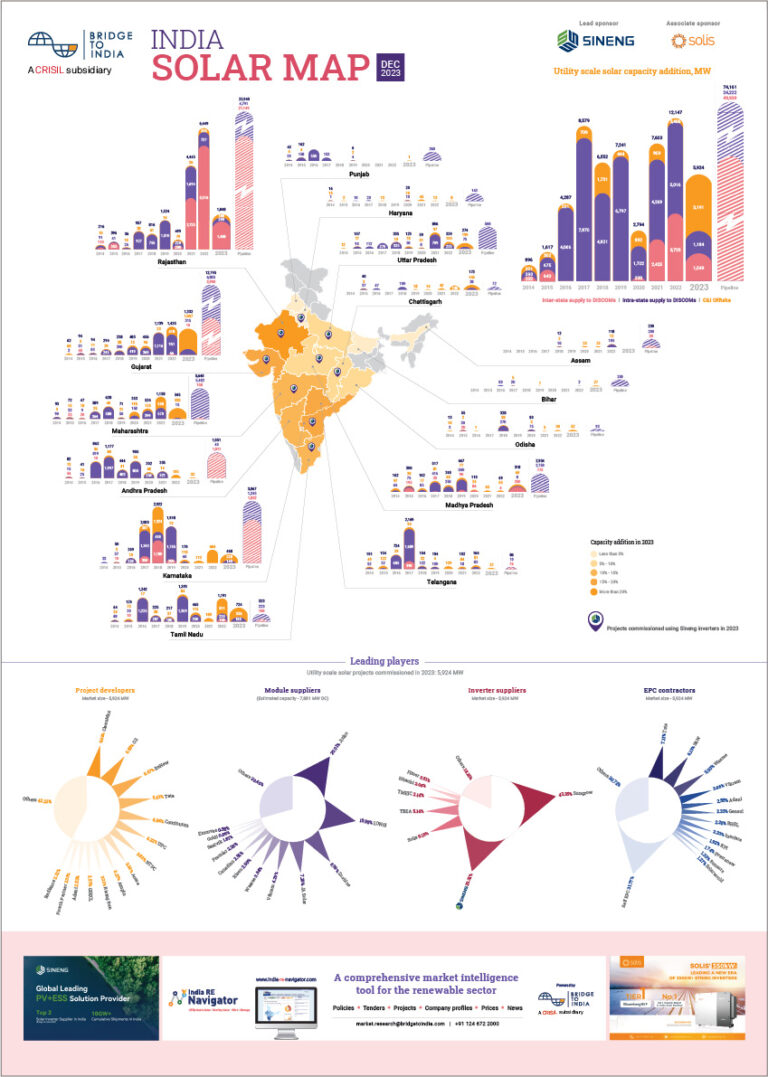Gujarat government has cancelled the 500-MW state tender, for which an auction was held just four weeks ago. Capacity was won in this tender by Kalthia Engineering (50 MW), Gujarat State Electricity Corporation (150 MW), Acme (100 MW) and Azure Power (200 MW). Reason for cancellation has been cited as winning tariffs, between INR 2.98 – 3.06/kWh, being “on the higher side”. In the same week, the state cancelled another tender for short-term purchase of 2,000 MW of conventional power again because the prices (INR 4.97/kWh-INR 8.00/kWh) were deemed to be too high.
- The cancellation shows a huge disconnect in the expectations of DISCOMs and power generators;
- Developers need higher tariffs to compensate for growing risks but government authorities do not seem to appreciate viability challenges facing the sector;
- Gujarat move raises the risk of more tender cancellations and legal disputes in future;
The 500 MW solar tender was issued in February 2017 and offered no relief from safeguard duty to developers. Given that the impact of 30% duty is estimated at about INR 0.40/ kWh, the final winning tariffs were actually rather attractive for the DISCOMs. The cancellation shows a huge disconnect in the expectations of DISCOMs and power generators. We believe that tariffs had fallen too far in the last year despite an increasing number of cost challenges and risks (GST, increase in module costs, steel and aluminium prices, import duties etc) faced by developers.
Projects with sub-INR 3.00 tariffs face serious viability challenges and a real risk of abandonment. It was to be hoped that increase in tender issuance would ease competitive pressure on developers and offer financial respite for long-term health of the sector. But the state authorities including DISCOMs seem to be detached from financial reality. Indeed, MNRE and other authorities have informally indicated multiple times that any increase in tariffs will not be tolerated.
The heavy-handed attitude of DISCOMs and arbitrary cancellation of tenders is a very negative development. It raises the risk of more tender cancellations by other DISCOMs and would potentially slow down project allocations even further. The developers, on their part, face increases in bidding cost, which would in the end need to be passed back to the DISCOMs. The cancellation is also a reminder of how MNRE’s proposed change in law relief for duties may come unstuck because of uncooperative DISCOMs and protracted legal disputes.
Gujarat’s move to cancel the two tenders is all the more surprising as the state is dealing with a power crisis. Because of a commercial dispute, two thermal IPPs have suspended 3,000 MW of power supply to the state. But the DISCOMs are not willing to listen and learn. The state has a renewable purchase obligation (RPO) target of 15.65% by 2020-21 and plans to buy 7,000 MW of new renewable capacity in the coming years. It would need to soften its attitude towards private developers to achieve its targets












